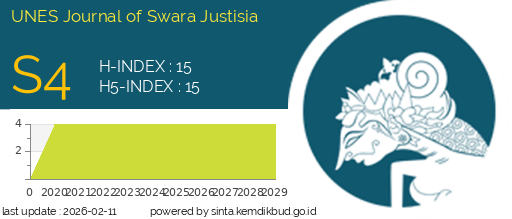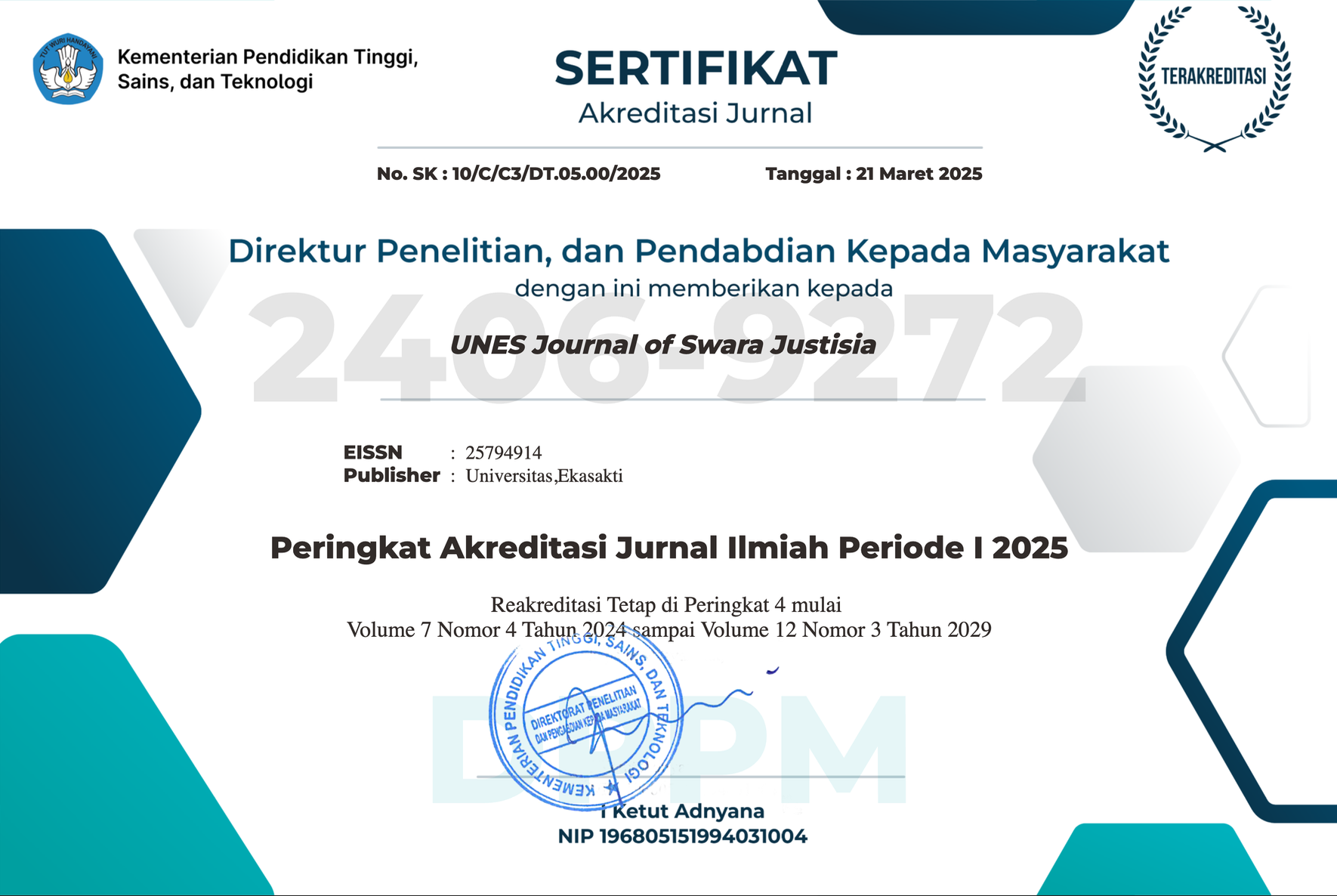EFEKTIFITAS PEMBINAAN NARAPIDANA DI LEMBAGA PEMASYARAKATAN GUNA MENCEGAH TERJADINYA PENGULANGAN TINDAK PIDANA (Studi pada Lembaga Pemasyarakatan klas IIA Padang)
Downloads
The guidance function has been carried out in an integrated manner between the
Trustees and those who are fostered and the community to improve the quality of
correctional facilities. It is intended that the wargabinaan be aware of their mistakes and
improve themselves so as not to repeat the criminal acts in the future. Pancasila as the
ideal foundation of the correctional system, mentions the existence of balance and
harmony both in human life as a person, and in relations with society in relation to nature,
as well as relations with God. The implementation of prisoner guidance to prevent the
occurrence of repetitions of crime is guided by Law No. 12 of 1995 concerning Prisoners,
prisons strongly uphold the human rights of every human being, guidance provided to the
assisted people is only intended so that the inmates will no longer repeat criminal acts
after free from criminal sanctions imposed upon him for acts he has committed so that
after being returned to the community, the assisted citizens can become good individuals
and obey the applicable law. The obstacle faced by the correctional institutions in carrying
out guidance to prisoners is over capacity in terms of the number of prisoners not in
accordance with the capacity provided, the number of employees who are not in
accordance with the number of prisoners and another obstacle is the placement of
prisoners.
Penulis yang mempublikasikan manuskripnya di jurnal ini menyetujui ketentuan berikut:
- Hak cipta pada setiap artikel adalah milik penulis.
- Penulis mengakui bahwa UNES Journal of Swara Justisia (UJSJ) berhak menjadi yang pertama menerbitkan dengan lisensi Creative Commons Attribution 4.0 International (Attribution 4.0 International CC BY 4.0).
- Penulis dapat mengirimkan artikel secara terpisah, mengatur distribusi non-eksklusif manuskrip yang telah diterbitkan dalam jurnal ini ke versi lain (misalnya, dikirim ke repositori institusi penulis, publikasi ke dalam buku, dll.), dengan mengakui bahwa manuskrip telah diterbitkan pertama kali di UNES Journal of Swara Justisia (UJSJ).
















